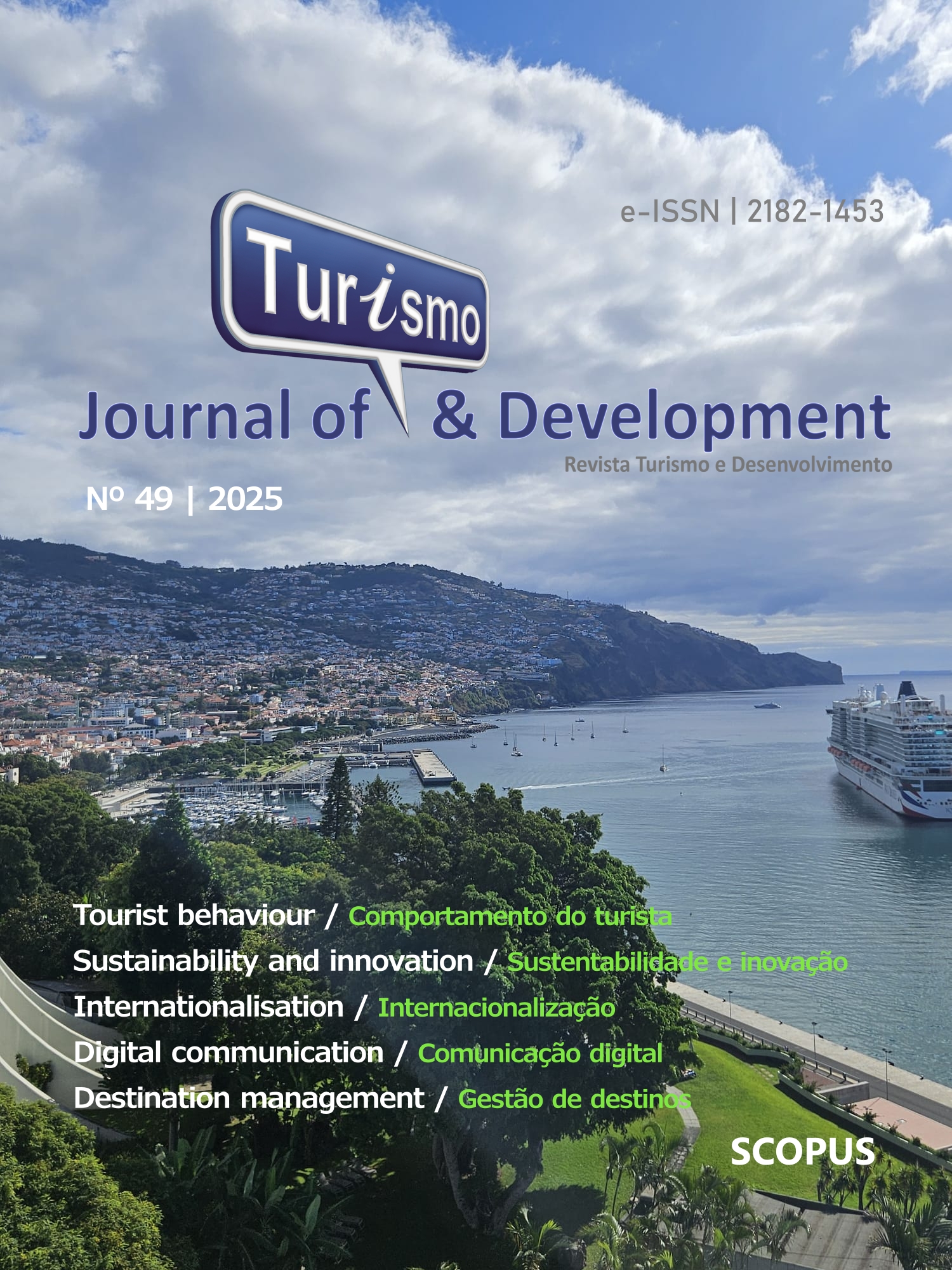Tourism and economic growth
Evidence of granger causality for Portugal
Resumo
As the tourism sector accounted for 15.8% of Portugal's economic output in 2022, it is crucial to examine this sector from various angles in Portugal. Using Granger causality, we confirmed a bidirectional relationship between tourism revenue and Gross domestic product per capita, as well as between the number of nights spent by tourists residing in Portugal in Portuguese collective accommodation establishments and Gross domestic product per capita from 1996 to 2022. Several unidirectional relationships were also found, namely between the average number of stays of tourists residing in Portugal and foreigners in the Portuguese Gross domestic product per capita, and the number of overnight stays of the tourists living in Portuguese territory and abroad in collective accommodation units (tourists who stay in establishments broadly classified as hotels) in Portugal, the average number of stays of these tourists, and Portuguese tourism revenues. Using data obtained from INE (Statistics Portugal) and Granger Causality, a notable fact that we observed is that, despite Portugal's GDP having increased in recent years, the average number of stays in Portugal, both for residents and non-residents, has not increased. More people spend nights in Portuguese shared accommodation units, but the average stay is not growing, which could benefit the country. Policy makers and various tourism agents must face this reality and find ways to encourage tourists to stay longer. As far as we know, this is the first time these variables have been used empirically with this methodology, which allows statistical relationships to be analysed from all possible angles.





